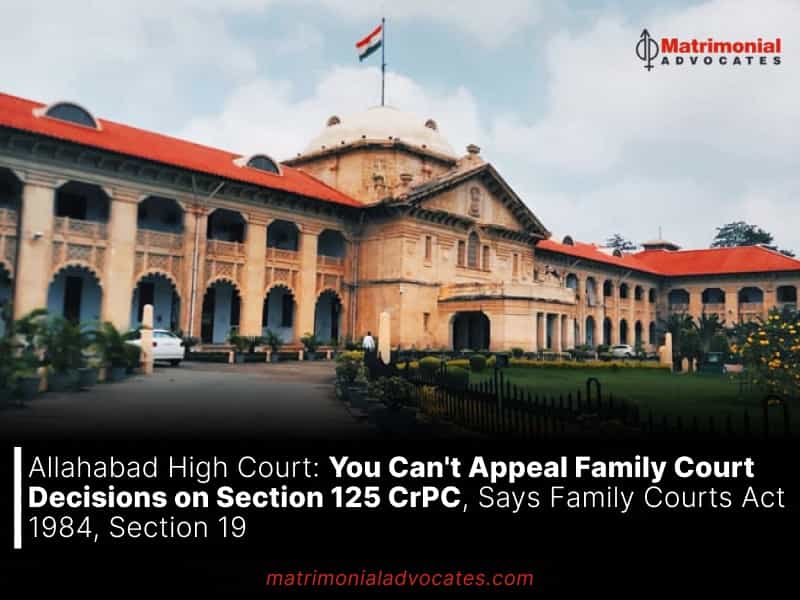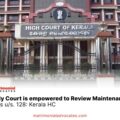
The pronouncement from the Allahabad High Court unambiguously establishes that adjudications emanating from a Family Court concerning matters under Section 125 of the Code of Criminal Procedure are devoid of appellate jurisdiction before the High Court. This constraint is grounded in the statutory provisions encapsulated within Section 19 of the Family Courts Act, 1984. The explication of this legal dictum transpired through the deliberations of a panel presided over by Justice Saumitra Dayal Singh and Justice Shiv Shanker Prasad, during their examination of the ramifications of Section 19 of the Family Courts Act, 1984.
“By using the words “Save as provided in sub-section (2)”, the parliament has left no doubt to be entertained as to the supremacy of sub-section (2) of Section 19 with respect to right of appeal created under Section 19(1) of the Act. Section 19(2) of the Act clearly denies right of appeal against any order that may be passed by a Family Court under Chapter IX of the Cr.P.C. Undisputedly Section 125 Cr.P.C. is an integral part of Chapter IX of the Cr.P.C.”
The appellant, in a preceding instance, sought redress through a criminal revision before the High Court, impugning the adjudication of the Additional Principal Judge at the Family Court in Shahjahanpur. The pronounced judgment, rendered under the purview of Chapter IX, Section 125 of the Code of Criminal Procedure, 1973, decreed a monthly maintenance of Rs. 2500 for the respondent-wife from the inception of her application. Subsequently, the appellant withdrew the aforementioned criminal revision, reserving the liberty to pursue recourse through an alternative judicial forum, thereby resulting in a temporal hiatus of 468 days before initiating the primary appeal before the High Court.
Legal counsel for the appellant contended that any decree issued by the Family Court was susceptible to appellate scrutiny before the High Court, in consonance with the provisions enshrined in Section 19 of the Family Courts Act, 1984.
Pursuant to the mandates articulated in Section 19(1) of the Family Courts Act, 1984, avenues for appellate recourse to the High Court are delineated for every order or judgment of the Family Court, excluding interlocutory orders. However, Section 19(2) elucidates specific conditions pertaining to…
“No appeal shall lie from a decree or order passed by the Family Court with the consent of the parties [or from an order passed under Chapter IX of the Code of Criminal Procedure, 1973 (2 of 1974)”
The Court observed that the appeal is arising from order passed by the Family Court under Section 125 CrPC. and not under Section 24 of the Hindu Marriage Act, 1955.
“While, it is true that every judgment or order passed by a Family Court is appealable to the High Court both on facts and law, except interlocutory orders and though it may be expected that order providing for maintenance is of the nature that may be appealable, at the same time, the right of appeal granted under Section 19(1) of the Act is hedged,” observed the Court.
The court has delineated that the entitlement to appeal is circumscribed by the conditions enumerated in Section 19(2) of the Family Courts Act of 1984. The modifying clause “Save as provided” in subsection (2) prevails over the appeal right enunciated in Section 19(1). The court expounded that in view of Section 125 of the Code of Criminal Procedure (CrPC) constituting an integral facet of Chapter IX of CrPC, the proscription established under Section 19(2) is germane to adjudications rendered pursuant to Section 125 of CrPC. Consequently, the appeal impugning the Family Court’s determination under Section 125 of CrPC was adjudicated as devoid of merit and accordingly dismissed.





